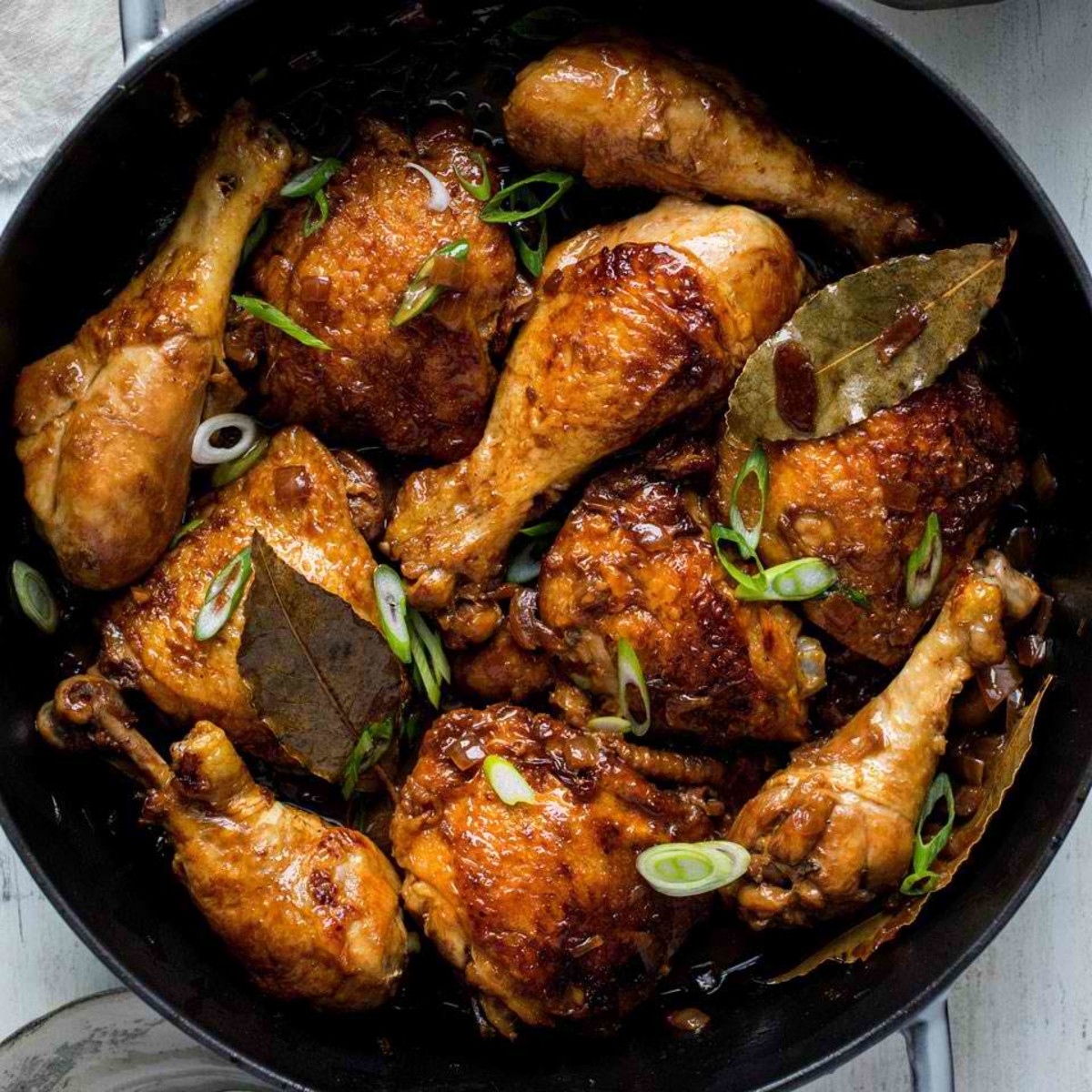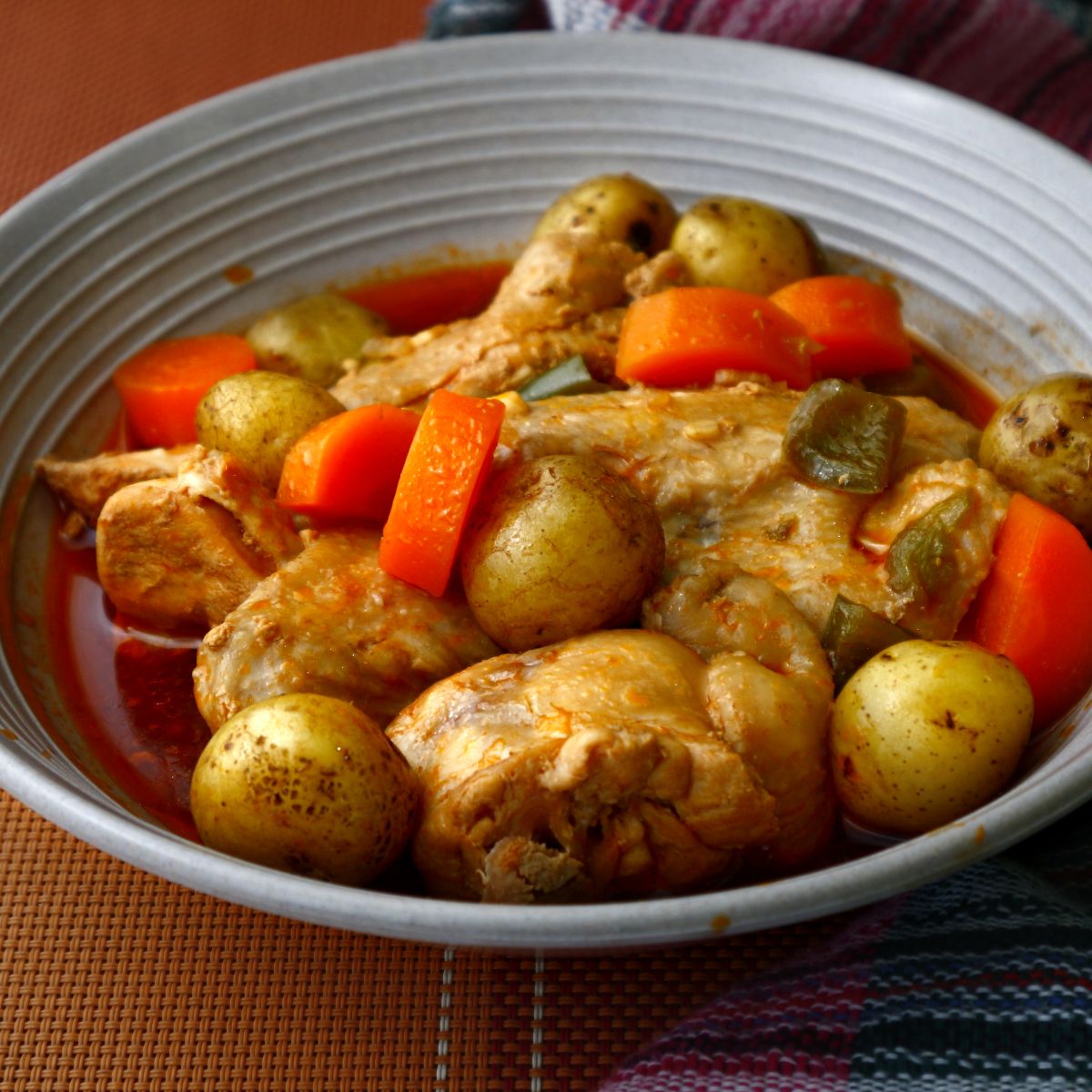Rooster recipe filipino meals embarks on a culinary journey, inviting you to delve into the colourful tapestry of Filipino delicacies, the place conventional flavors dance with fashionable variations, making a symphony of style that can tantalize your palate and captivate your senses.
From the bustling streets of Manila to the serene shores of Palawan, Filipino cooking has woven a wealthy tapestry of culinary delights, and hen recipes maintain a particular place on this vibrant culinary panorama.
Filipino Delicacies Background

Filipino delicacies is a various and flavorful reflection of the Philippines’ wealthy historical past and tradition. It has been formed by centuries of colonization, commerce, and migration, leading to a novel mix of indigenous, Spanish, Chinese language, and different Southeast Asian influences.
Culinary Influences
The arrival of Spanish colonizers within the sixteenth century launched new elements and cooking methods to the Philippines. Spanish dishes like paella and adobo have turn into Filipino staples, whereas the usage of garlic, onions, and tomatoes turned widespread. Chinese language merchants additionally introduced their culinary traditions, introducing dishes like siomai and lumpia.
Moreover, the Philippines’ proximity to different Southeast Asian international locations has resulted within the adoption of dishes like satay and rendang.
Cooking Strategies
Filipino cooking methods are as various as its elements. Conventional strategies embrace grilling, frying, stewing, and boiling. One distinctive method is adobo, the place meat or greens are simmered in a combination of vinegar, soy sauce, garlic, and peppercorns. One other well-liked method is sinigang, a bitter soup made with tamarind or guava.
Filipino delicacies additionally options all kinds of sauces and condiments, corresponding to soy sauce, fish sauce, and bagoong.
Widespread Elements
Rice is the staple meals within the Philippines and is served with nearly each meal. Different widespread elements embrace pork, hen, fish, greens, and fruits. Filipino delicacies is understood for its use of daring flavors and spices, corresponding to ginger, turmeric, and chili peppers.
Vinegar and soy sauce are additionally ceaselessly used as seasonings.
Rooster Recipes in Filipino Delicacies
Rooster is a flexible ingredient that’s extensively utilized in Filipino delicacies. It’s cooked in a wide range of methods, from easy stews to advanced roasts. A number of the hottest hen recipes in Filipino delicacies embrace:
Adobo
Adobo is a traditional Filipino dish that’s made with hen or pork braised in a combination of soy sauce, vinegar, garlic, and bay leaves. It’s a flavorful and hearty dish that’s excellent for a household meal.
Sinigang na Manok
Sinigang na Manok is a bitter and savory soup that’s made with hen, greens, and a tamarind broth. It’s a refreshing and flavorful dish that’s excellent for a scorching day.
Rooster Inasal
Rooster Inasal is a grilled hen dish that’s marinated in a combination of annatto oil, garlic, and ginger. It’s a flavorful and juicy dish that’s excellent for a barbecue.
Cooking Strategies
Rooster dishes in Filipino delicacies are cooked utilizing a wide range of strategies, together with:
- Braising: Braising is a technique of cooking that includes browning the hen in a pot after which simmering it in a liquid.
- Roasting: Roasting is a technique of cooking that includes cooking the hen in an oven.
- Grilling: Grilling is a technique of cooking that includes cooking the hen over an open flame.
- Frying: Frying is a technique of cooking that includes cooking the hen in scorching oil.
Spices and Seasonings
Filipino hen recipes typically use a wide range of spices and seasonings, together with:
- Garlic: Garlic is a typical ingredient in Filipino delicacies and is used so as to add taste to hen dishes.
- Ginger: Ginger is one other widespread ingredient in Filipino delicacies and is used so as to add a bit of warmth to hen dishes.
- Soy sauce: Soy sauce is a staple ingredient in Filipino delicacies and is used so as to add taste and colour to hen dishes.
- Vinegar: Vinegar is one other staple ingredient in Filipino delicacies and is used so as to add a little bit of sourness to hen dishes.
- Bay leaves: Bay leaves are a typical ingredient in Filipino delicacies and are used so as to add a little bit of taste to hen dishes.
Dietary Worth of Rooster Recipes
Filipino hen recipes supply a variety of dietary advantages. Rooster is a superb supply of lean protein, important for constructing and sustaining muscle mass. It is usually wealthy in nutritional vitamins and minerals, together with niacin, vitamin B6, selenium, and phosphorus. These vitamins play essential roles in power manufacturing, mind operate, immune well being, and bone well being.
Well being Advantages of Incorporating Rooster right into a Weight loss plan
Consuming hen as a part of a balanced weight-reduction plan gives quite a few well being advantages. The excessive protein content material helps muscle development and restore, whereas the nutritional vitamins and minerals contribute to total well-being. Rooster can also be comparatively low in saturated fats and ldl cholesterol, making it a more healthy possibility in comparison with purple meat.
Moreover, hen is a flexible ingredient that may be cooked in numerous methods, permitting for a variety of dietary choices.
Significance of Balancing Vitamin
Whereas Filipino hen recipes supply dietary advantages, you will need to eat them moderately and steadiness them with different meals teams. A balanced weight-reduction plan ought to embrace a wide range of fruits, greens, complete grains, and lean protein sources. This ensures that the physique receives all of the important vitamins it wants for optimum well being and prevents nutrient deficiencies or excesses.
Presentation and Serving Kinds
Filipino hen dishes are famend for his or her vibrant presentation and various serving types, reflecting the nation’s wealthy culinary traditions.
Conventional Filipino hen dishes are sometimes served with rice, which serves as the primary accompaniment. The rice is usually cooked with flavorful elements like garlic, onions, and ginger, complementing the savory flavors of the hen.
Garnishes and Accompaniments
Filipino hen dishes are sometimes adorned with a wide range of garnishes and accompaniments that improve their flavors and visible attraction. These embrace:
- Onions: Thinly sliced purple or white onions add a refreshing crunch and sharpness to the dish.
- Tomatoes: Diced tomatoes present a vibrant colour distinction and a touch of acidity.
- Inexperienced onions: Finely chopped inexperienced onions sprinkle a contact of freshness and a gentle onion taste.
- Calamansi: The juice of calamansi, a small citrus fruit, provides a bitter and tangy word.
Serving for Totally different Events
The presentation and serving types of Filipino hen dishes differ relying on the event. For on a regular basis meals, hen dishes are sometimes served in a easy method, with rice and some garnishes.
For particular events corresponding to fiestas or household gatherings, hen dishes are sometimes ready with extra elaborate displays. They might be served on giant platters, garnished with colourful greens, and accompanied by a wide range of facet dishes and sauces.
Cultural Significance of Rooster Recipes

Rooster recipes maintain a outstanding place in Filipino tradition, deeply intertwined with social and familial traditions.
Throughout festivals and celebrations, hen dishes are sometimes the centerpiece of the feast. They symbolize abundance, prosperity, and the sharing of pleasure inside the group. Adobo, a well-liked hen stew, is a staple dish throughout Christmas and different essential holidays, embodying the spirit of unity and togetherness.
Function in Filipino Festivals and Celebrations
- Sinuglaw, a grilled hen and seafood dish, is a signature dish throughout the Sinulogpageant in Cebu.
- Lechon manok, roasted complete hen, is a must have throughout fiestas and particular events.
Social and Familial Features
- Sharing hen dishes fosters a way of group and belonging. It’s customary to supply company the perfect elements of the hen as an indication of respect and hospitality.
- Household gatherings typically revolve round a shared hen dish, creating reminiscences and strengthening bonds.
Fashionable Diversifications of Rooster Recipes

Over time, Filipino hen recipes have undergone important evolution, incorporating fashionable cooking methods and elements whereas embracing the fusion of flavors from different cuisines. This has resulted in a various and progressive culinary panorama.
Affect of Fashionable Cooking Strategies and Elements
Fashionable cooking methods corresponding to sous vide, molecular gastronomy, and air frying have made their approach into Filipino hen recipes, permitting for exact temperature management and the creation of progressive textures. Moreover, the usage of world elements like herbs, spices, and sauces has expanded the flavour profiles of conventional dishes.
Fusion with Different Cuisines, Rooster recipe filipino meals
Filipino hen recipes have additionally embraced fusion with different cuisines, significantly Asian and Western. This has led to the creation of dishes like Rooster Teriyaki, which mixes Filipino marinade with Japanese teriyaki sauce, and Rooster Parmesan, which blends Filipino-style hen with Italian Parmesan cheese.
Cooking Demonstration and Recipe Information
On this part, we offer an in depth information to cooking a well-liked Filipino hen recipe, full with step-by-step directions, ingredient lists, and cooking occasions. The recipe is offered in a visually interesting desk for ease of reference.
Rooster Adobo
Rooster Adobo is a traditional Filipino dish that’s each flavorful and straightforward to organize. It’s a versatile dish that may be served with rice, noodles, or greens.
Elements:
- 1 pound boneless, skinless hen thighs or breasts, minimize into 1-inch items
- 1/2 cup soy sauce
- 1/2 cup vinegar
- 1/4 cup water
- 1 tablespoon garlic, minced
- 1 tablespoon black peppercorns
- 1 bay leaf
Directions:
- In a big bowl, mix the hen, soy sauce, vinegar, water, garlic, peppercorns, and bay leaf.
- Cowl and refrigerate for no less than half-hour, or as much as in a single day.
- Warmth a big skillet over medium warmth. Add the hen and marinade to the skillet.
- Deliver to a boil, then cut back warmth to low and simmer for 20-25 minutes, or till the hen is cooked by way of.
- Serve scorching with rice, noodles, or greens.
Cooking Time:
30-35 minutes
More healthy Options and Substitutions
Incorporating more healthy alternate options into conventional Filipino hen recipes lets you benefit from the flavors you’re keen on whereas selling total well-being. By lowering fats, sodium, and energy, you possibly can create dishes which are each scrumptious and nutritious.
Lowering Fats
- Use leaner cuts of hen, corresponding to hen breast or thigh, which have decrease fats content material than darkish meat.
- Take away the pores and skin from hen earlier than cooking, because it comprises a major quantity of fats.
- Select more healthy cooking strategies, corresponding to grilling, baking, or steaming, as a substitute of frying.
Lowering Sodium
- Use low-sodium soy sauce or coconut aminos as a substitute of normal soy sauce.
- Restrict the usage of processed elements, corresponding to canned soups or sauces, which regularly include excessive ranges of sodium.
- Add taste with herbs, spices, and contemporary elements as a substitute of counting on salt.
Lowering Energy
- Use brown rice or quinoa as a substitute of white rice, as they’re increased in fiber and vitamins.
- Incorporate extra greens into your dishes, corresponding to stir-fries or salads.
- Select leaner protein sources, corresponding to fish or tofu, as a substitute of fatty meats.
High FAQs: Rooster Recipe Filipino Meals
What’s the hottest hen recipe in Filipino delicacies?
Adobo is extensively thought-about essentially the most iconic hen recipe in Filipino delicacies, a dish that embodies the nation’s culinary heritage and showcases the harmonious mix of savory, bitter, and salty flavors.
How do Filipino hen recipes incorporate spices and seasonings?
Filipino hen recipes typically characteristic a vibrant array of spices and seasonings, together with garlic, onion, ginger, turmeric, paprika, and black pepper. These elements create a posh and fragrant taste profile that tantalizes the style buds.
What’s the significance of hen recipes in Filipino tradition?
Rooster recipes maintain deep cultural significance in Filipino society, typically served throughout particular events, festivals, and household gatherings. They symbolize unity, hospitality, and the sharing of pleasure by way of meals.


